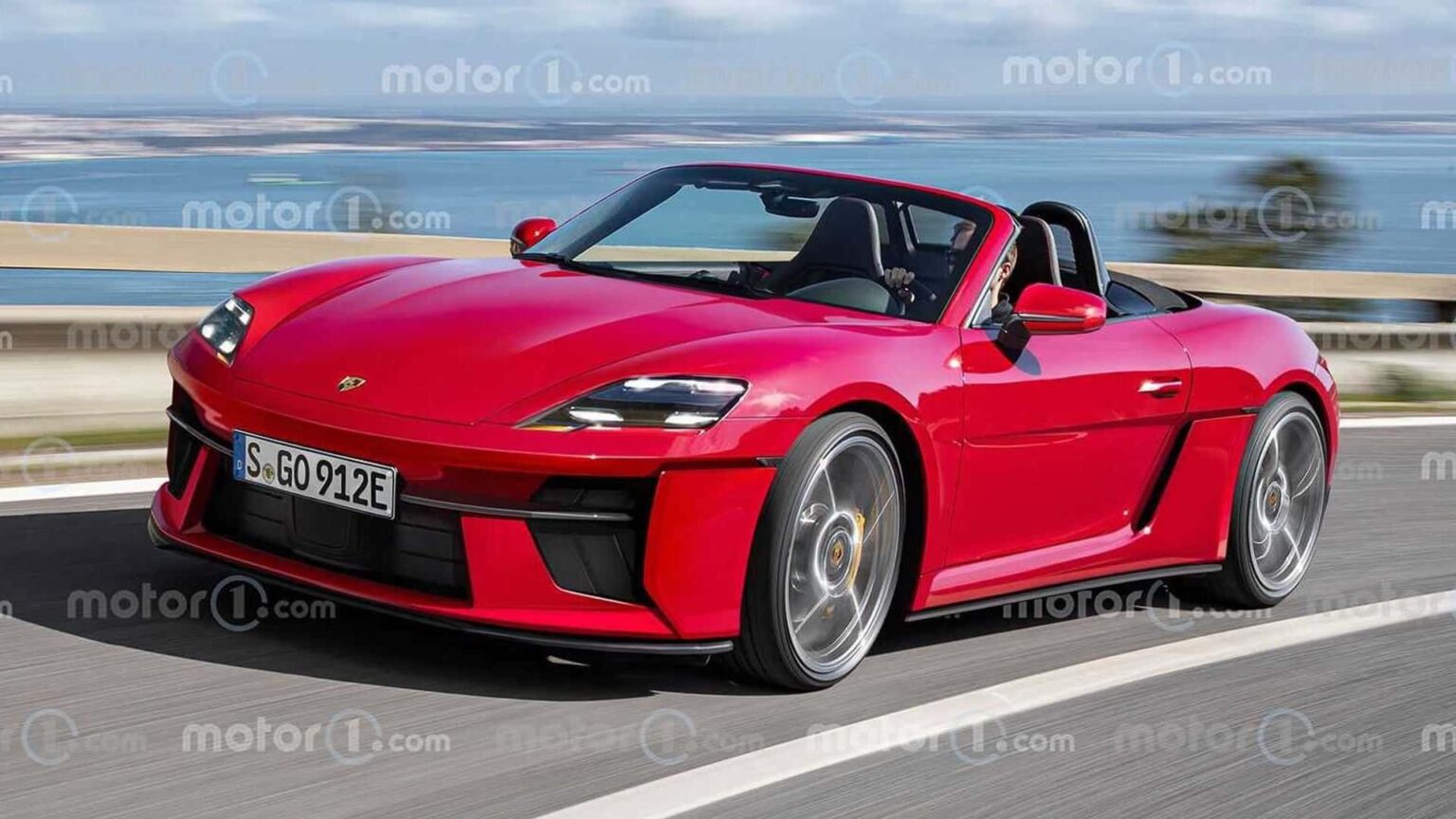It’s hard to believe more than three years have passed since Porsche announced the 718 would go fully electric. Although EV adoption hasn’t progressed as quickly as Zuffenhausen projected, the plan to remove the combustion engine from the Boxster and Cayman remains unchanged. Next month, the last ICE-powered cars will roll off the assembly line.
Porsche has long said the EV replacements would arrive around the middle of the decade. Technically, it hasn’t broken that promise, but we’ll likely have to wait until 2026 to see the next-generation Boxster and Cayman. If you were hoping for a gas engine behind the seats, we hate to be the bearer of bad news. Frank Moser, Vice President of the 718 and 911 lineups, has reiterated that the cars are going completely electric:
Speaking with Australia’s CarSales magazine, the mechanical engineer who has been with Porsche since 1996 didn’t miss the chance to hype up the 718 EVs: “You could be aware this car is going to be really, really brilliant because it’s light, powerful, and that’s a combination for a two-door sports car, believe me.”
Moser insists Porsche is fully committed to turning the Boxster and Cayman into electric sports cars: “I think it’s not really the wrong decision.” He declined to comment on rumors suggesting the 718 might also be engineered to accommodate combustion engines. That’s likely just speculation, considering Audi has already told us the production-ready Concept C will be sold strictly as an EV developed on a platform shared with other Volkswagen Group products.
Porsche Cayman EV rendering by Motor1
Photo by: Motor1
It would make sense for Porsche and Audi to collaborate to spread costs and achieve economies of scale. Launching a sports car is no easy task since the segment continues to shrink, and these electric models are unlikely to resonate with enthusiasts the way combustion-powered performance cars do. That’s a reality the two high-end brands will have to face.
Although Moser was predictably tight-lipped about the electric Boxster and Cayman, he emphasized that they will be light. While he didn’t provide a ballpark figure, there are reasons to believe the new 718 won’t be a porker. The Cayman-based Mission R concept, for instance, tipped the scales at around 3,306 pounds (1,500 kilograms) despite carrying a sizable 82-kWh battery pack.

27
Granted, the Mission R was closer to a race car than a road-legal vehicle. Still, battery technology has advanced significantly since the concept debuted back in 2021. With higher energy density, Porsche could reduce battery capacity, especially since range is less of a priority for buyers in this segment. Even so, gas-engine loyalists are bound to scoff at the idea of an electric Boxster or Cayman. It’s a risky move, one Porsche also made with the Macan before eventually deciding to launch a combustion-powered successor.
Developing a new ICE model to replace the first-generation Macan is far easier thanks to the readily available Premium Platform Combustion (PPC) architecture underpinning the Audi Q5. In contrast, the electric 718s require a specialized platform with far greater packaging constraints, making it difficult to integrate a conventional drivetrain. It may not even be worth the additional investment for what will remain a niche product, with or without a gas engine.
Suffice it to say, there’s no going back now.
Read the full article here



